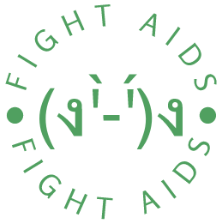The fight against AIDS is an ongoing battle that has shaped the global health landscape for decades. With millions of lives affected by this devastating disease, efforts to combat HIV/AIDS have spanned across continents, united governments, organizations, and individuals. In this article, we will delve into the intricacies of AIDS, examine the progress made in the global fight against it, explore prevention and treatment strategies, address the issue of stigma, highlight research and innovation, and even touch upon the unexpected role that live casinos https://plinkogameonline.com/ have played in AIDS advocacy. So, let’s embark on this journey together and discover the inspiring developments and challenges in the fight against AIDS.
Understanding AIDS
So, AIDS stands for Acquired Immunodeficiency Syndrome. It’s a serious medical condition caused by a sneaky little virus called HIV. This virus messes with your immune system, making it weaker and leaving your body more vulnerable to all sorts of infections and diseases. Not cool, right? Now, how does someone get AIDS? Well, it can be transmitted through stuff like unprotected sex, sharing needles, or even from a mom to her baby during childbirth or breastfeeding.
What is AIDS?
Acquired Immunodeficiency Syndrome (AIDS) is a medical condition caused by the Human Immunodeficiency Virus (HIV). It primarily affects the immune system, weakening the body’s ability to fight off infections and diseases. Without proper treatment, AIDS can be life-threatening.
Causes of AIDS
HIV, the virus responsible for AIDS, can be transmitted through various means, including unprotected sexual intercourse, sharing needles or syringes, mother-to-child transmission during childbirth or breastfeeding, and blood transfusions with infected blood.
Transmission of HIV
HIV can be transmitted through the exchange of certain body fluids, such as blood, semen, vaginal fluids, and breast milk. It is important to practice safe sex, use clean needles, and undergo HIV testing to prevent the spread of the virus.
The Global Fight against AIDS
Over the years, we’ve made incredible progress in raising awareness, improving treatment access, and reducing new infections. But let’s be real, it hasn’t been an easy journey. We’ve faced challenges like limited resources, healthcare disparities, and the stubborn presence of stigma. However, we’re not backing down. We have global initiatives like UNAIDS leading the charge, and organizations like the Global Fund providing the much-needed funds. Together, we’re fighting this battle, inch by inch, and making a difference in the lives of millions.
Historical context
The fight against AIDS gained momentum in the 1980s when the epidemic emerged as a public health crisis. Since then, concerted efforts have been made worldwide to address the social, economic, and health consequences of HIV/AIDS.
Progress and challenges
Significant progress has been made in the global fight against AIDS. Access to antiretroviral therapy (ART) has improved, reducing the number of AIDS-related deaths. However, challenges such as limited resources, healthcare disparities, and stigma still persist.
Global initiatives and organizations
Numerous global initiatives and organizations have been instrumental in the fight against AIDS. The Joint United Nations Programme on HIV/AIDS (UNAIDS) coordinates global efforts, while organizations like the Global Fund to Fight AIDS, Tuberculosis and Malaria provide funding for prevention, treatment, and care programs.
Prevention and Awareness
Prevention and awareness play a crucial role in the fight against AIDS. When it comes to preventing the transmission of HIV, it’s all about being smart and taking care of ourselves and our partners.
Safe sex practices
Practicing safe sex is crucial in preventing the transmission of HIV. This includes using condoms consistently and correctly, limiting the number of sexual partners, and getting tested regularly.
HIV testing and counseling
Regular HIV testing is essential for early detection and prompt treatment. Counseling services provide support, education, and guidance to individuals living with HIV/AIDS and their loved ones.
Education and outreach programs
Education plays a vital role in raising awareness about HIV/AIDS. Outreach programs, community-based initiatives, and educational campaigns help dispel myths, reduce stigma, and promote safe behaviors.
Treatment and Care
When it comes to treating and caring for people with HIV/AIDS, we’ve seen major progress. The main treatment is antiretroviral therapy (ART), a combo of meds that helps suppress the virus, boost the immune system, and improve overall health. It’s been a game-changer, allowing folks to live long and fulfilling lives. Making sure everyone has access to affordable meds is important too. Supportive care services, like mental health support and nutrition guidance, also play a big role in helping people thrive. With comprehensive treatment and care, we’re giving those with HIV/AIDS the chance to live their best lives.
Antiretroviral therapy
Antiretroviral therapy (ART) is the standard treatment for HIV/AIDS. It involves a combination of medications that suppress the virus, improve immune function, and reduce the risk of disease progression.
Access to medication
Ensuring access to affordable and quality HIV medication remains a significant challenge, particularly in resource-limited settings. Efforts are being made to improve drug availability and affordability, with the aim of reaching all those in need.
Supportive care services
Comprehensive care for individuals living with HIV/AIDS goes beyond medication. Supportive care services encompass psychosocial support, mental health services, nutritional support, and addressing co-existing health conditions.
Stigma and Discrimination
Stigma and discrimination suck. People with HIV/AIDS still get judged and treated poorly. It’s not fair. We need to stop being afraid and start being understanding. Let’s educate ourselves, show compassion, and stand up against discrimination. It’s time to support and accept those affected by HIV/AIDS. Together, we can make a difference.
Impact of stigma on people living with HIV/AIDS
Stigma and discrimination against individuals living with HIV/AIDS have far-reaching consequences. It can lead to social exclusion, loss of employment, limited access to healthcare, and psychological distress.
Addressing stigma and discrimination
Efforts to combat stigma and discrimination involve community mobilization, education, and legal protections. Advocacy campaigns aim to promote understanding, empathy, and acceptance for those affected by HIV/AIDS.
Promoting Research and Innovation
Promoting research and innovation is super important in the fight against AIDS. We gotta keep pushing boundaries, exploring new ideas, and thinking outside the box. Scientists are working their butts off to understand the virus better and come up with kickass treatments. They’re even looking for a vaccine that could prevent HIV infection altogether. Exciting stuff! We need to keep supporting research and innovation to kick AIDS to the curb.
Scientific advancements
Ongoing research and scientific advancements have led to a better understanding of HIV/AIDS, improved diagnostic tools, and innovative treatment approaches. Continuous investment in research is crucial for developing new interventions and finding a cure.
Vaccine development
The development of an effective HIV vaccine remains a top priority. Researchers are exploring different vaccine strategies and conducting clinical trials to evaluate their efficacy and safety.
Promising treatments
Beyond antiretroviral therapy, promising treatments such as long-acting injectables and novel drug combinations are being investigated. These advancements aim to simplify treatment regimens, improve adherence, and enhance patient outcomes.
The Role of Live Casinos in AIDS Advocacy
Believe it or not, live casinos are getting in on the fight against AIDS. These online gaming hubs are teaming up with AIDS organizations to raise awareness and support the cause. They use their platforms to spread the word about HIV/AIDS, promote safe sex, and even collect donations. It’s a surprising but effective way for live casinos to make a difference and show their commitment to social responsibility.
Raising awareness through online platforms
Live casinos have become popular online destinations for entertainment, including gambling and gaming. Recognizing their extensive reach, some live casinos have partnered with AIDS organizations to raise awareness about HIV/AIDS. They use their platforms to disseminate information, promote safe sex practices, and encourage donations for AIDS-related initiatives.
Fundraising efforts
Live casinos have organized fundraising events and campaigns to support AIDS organizations. They leverage their customer base and networks to generate funds that contribute to prevention programs, treatment access, and support services.
Partnerships with AIDS organizations
Through partnerships with AIDS organizations, live casinos demonstrate their commitment to social responsibility. Collaborations include sponsorship of events, funding research projects, and supporting advocacy efforts that aim to eliminate the stigma associated with HIV/AIDS.
Conclusion
The fight against AIDS continues to be a critical global endeavor. Progress has been made in prevention, treatment, and awareness, but challenges persist. By fostering collaboration, promoting education, advocating for access to care, and addressing stigma, we can work towards a world free from the burden of HIV/AIDS. Together, we can empower lives, create hope, and strive for a future where no one is left behind.

